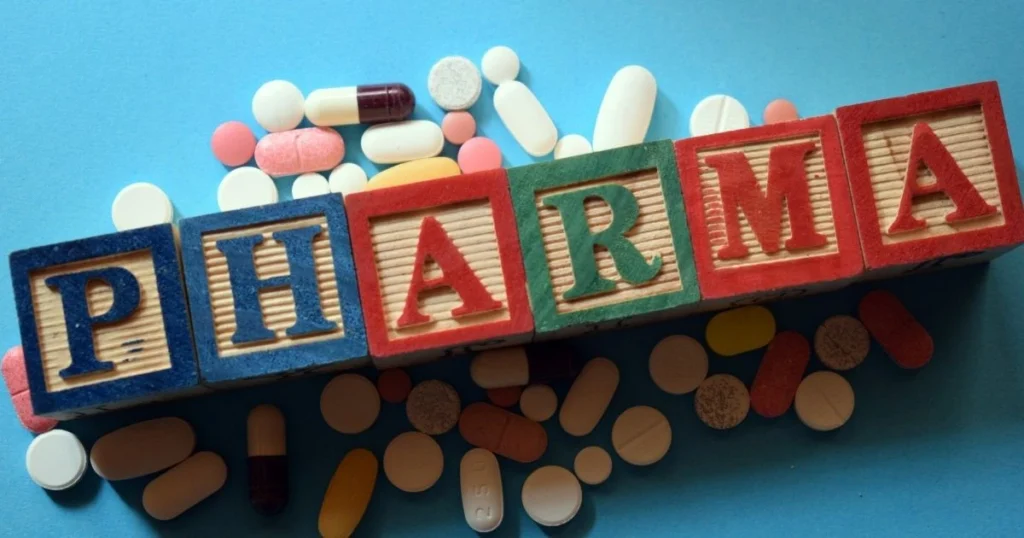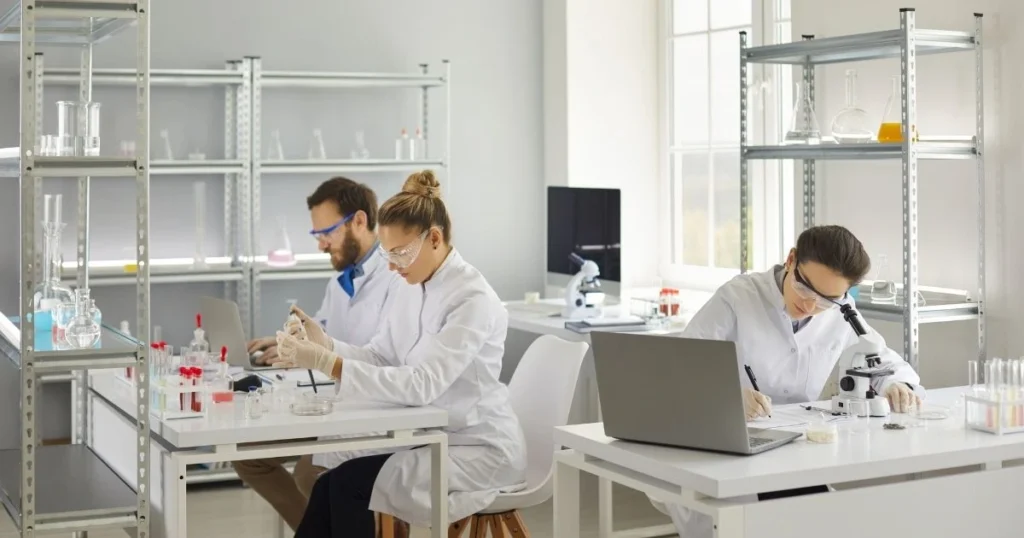Interview Questions for Pharma Industry: If you’re preparing for a job in the pharmaceutical sector, you’re probably already aware – this isn’t just any interview. Whether you’re a fresher or someone with experience in Quality Assurance (QA), Quality Control (QC), or Regulatory Affairs, the questions are tailored to check your technical skills, regulatory knowledge, and mindset.
In this blog, we will give you 50 interview questions for pharma industry, with helpful tips, brief answers, and a few real-life examples.
We’ve also included details on upskilling through Learning Labb Research Institute (LLRI), a leading clinical research institute offering courses that could give your resume the RIGHT edge!
Why Interview Prep Matters in Pharma?
The pharmaceutical industry is one of the most regulated sectors globally. From GMP compliance to FDA audits, there’s little room for error. That’s why employers look for people who know their stuff and understand the stakes.
“The pharmaceutical industry is not just about making medicines; it’s about protecting lives.” – Dr Zeenat, HOD at LLRI
Categories Covered:

General Interview Questions for Pharma Industry
These are standard questions to test your understanding of pharma processes and your work attitude.
- Tell me about yourself.
- Keep it professional. Mention your education, experience, and interest in pharma.
- Why do you want to work in the pharma industry?
- What is GMP? Why is it important?
- GMP stands for Good Manufacturing Practices.
- Difference between GLP and GMP?
- What do you know about our company?
- Pro tip: Research the company beforehand.
- What are the major challenges in pharma manufacturing today?
- How do you handle deviations?
- Can you explain the importance of SOPs?
- How do you deal with regulatory inspections?
- Tell us about a time you had a conflict in your team.
Quality Assurance Interview Questions in Pharma Industry
These quality assurance interview questions in pharma industry assess your process knowledge and eye for compliance.
- What is a deviation?
- What is a CAPA? Corrective and Preventive Action. A core QA concept.
- Explain change control.
- How do you qualify equipment?
- What’s the role of QA during validation?
- What’s the difference between QA and QC?
- What documents are reviewed during a batch release?
- How do you handle batch failures?
- What is line clearance?
- What is market complaint investigation?
LLRI offers QA mastery under their clinical research training courses. Perfect if you’re targeting QA roles and want industry exposure.
QA Interview Questions in Pharma
Here’s a continuation focused more deeply on QA interview questions in pharma processes.
- What is in-process quality control (IPQC)?
- How do you approve raw materials?
- What is QMS (Quality Management System)?
- How do you perform document control?
- How do you audit a supplier?
- What’s the role of QA during packaging?
- How do you train new staff on SOPs?
- Can you list types of validations in pharma?
- How do you conduct self-inspections?
- How do you handle product recalls?
Interview Questions for QC in Pharma
This section deals with interview questions for QC in pharma, especially important for those in the lab or analytical departments.
- What is the role of QC in pharma?
- Explain HPLC.
- What is a stability study?
- What are limit tests?
- Explain dissolution testing.
- What is out-of-specification (OOS)?
- Difference between precision and accuracy?
- How do you calibrate analytical instruments?
- What is assay?
- What is system suitability testing?
Do you want to boost your QC skills? Check out LLRI’s Clinical Research Course, which includes the most-updated modules.
Pharma Interview Questions for Freshers
Are you fresh out of college? These pharma interview questions for freshers are often asked in entry-level interviews.
- Tell me about your final year project.
- What subjects were your favourite in college and why?
- What is the role of a fresher in pharma QA/QC?
- What are common dosage forms?
- What is the difference between suspension and emulsion?
- Why do you want to join QA/QC instead of R&D?
- Are you open to rotational shifts?
- How do you keep up with pharma industry trends?
- Do you plan to study further?
- Have you done any internships or online courses?
Mention if you’ve taken any course from LLRI, the best institute for PG Diploma in Clinical Research. It leaves a great impression.

Quality Control Interview Questions and Answers in Pharm
When it comes to Quality Control (QC) roles in the pharmaceutical industry, you need more than just textbook knowledge. QC professionals are responsible for testing raw materials, in-process samples, and finished products to make sure they meet regulatory and company specifications. Below is a curated list of quality control interview questions and answers in pharm, designed to help you build confidence before walking into that interview room.
1. What is the role of Quality Control in the pharmaceutical industry?
Answer: QC ensures that raw materials, intermediates, and finished products meet defined quality standards. This involves analytical testing, documentation, and reporting deviations.
“Quality Control is the backbone of drug safety. Without it, compliance is just a myth.” – Learning Labb Research Institute (LLRI) Clinical Research Faculty
2. What is the difference between accuracy and precision?
Answer:
- Accuracy refers to how close a measured value is to the true value.
- Precision indicates how close repeated measurements are to each other.
Think of accuracy as hitting the bullseye; precision is hitting the same spot over and over, even if it’s off-center.
3. What is system suitability testing in HPLC?
Answer: System suitability testing checks if the chromatographic system (like HPLC) is performing well before sample analysis. Parameters like resolution, tailing factor, and theoretical plates are evaluated.
4. What is the significance of calibration in Quality Control?
Answer: Calibration ensures that instruments give accurate results. Without regular calibration, data becomes unreliable, risking product quality and regulatory violations.
5. Explain the difference between OOS and OOT.
Answer:
- OOS (Out of Specification): Results that fall outside the predefined acceptance criteria.
- OOT (Out of Trend): Results within specs but showing abnormal trends when compared to historical data.
6. What is the function of a reagent blank in analytical testing?
Answer: A reagent blank helps in correcting the instrument reading by accounting for any absorbance due to solvents or reagents used, excluding the analyte.
7. What is the importance of a stability study in pharmaceuticals?
Answer: Stability studies determine how long a drug maintains its identity, strength, quality, and purity under various environmental conditions. This data sets product shelf life and storage guidelines.
8. What is the purpose of a dissolution test?
Answer: It measures the rate and extent of drug release from a dosage form. It’s vital for ensuring consistent therapeutic effect and bioavailability.
If you’re applying for a QC analyst position, brush up on dissolution media, apparatus types (USP I and II), and time points.
9. Why is GLP important in Quality Control?
Answer: Good Laboratory Practice (GLP) ensures consistency, reliability, and integrity of test results. It supports accurate documentation and accountability in QC environments.
10. What are common analytical techniques used in QC labs?
Answer:
- HPLC (High-Performance Liquid Chromatography)
- UV-Visible Spectroscopy
- IR (Infrared Spectroscopy)
- GC (Gas Chromatography)
- Titration
- Karl Fischer for moisture content
LLRI’s Clinical Research Course includes hands-on modules in the above topics.
11. What are the steps in handling an Out of Specification (OOS) result?
Answer:
- Immediate documentation of OOS
- Inform QA/Manager
- Begin Phase I investigation (lab errors)
- If no lab error, move to Phase II (manufacturing issues)
- Take corrective actions and document CAPA
12. What is the limit test in pharmacopoeia?
Answer: It checks for the presence of impurities within prescribed limits. For example, tests for arsenic, lead, chloride, sulphate, etc., as per IP/USP/BP guidelines.
13. Difference between validation and calibration?
Answer:
- Validation proves that a method or process consistently gives expected results.
- Calibration adjusts an instrument to give accurate measurements.
14. What is the procedure for sample destruction in QC labs?
Answer: Typically, it involves:
- Documentation of sample identity and reason for destruction
- QA approval
- Actual destruction (e.g., incineration or chemical treatment)
- Record maintenance
15. What is ICH and its relevance to QC?
Answer: ICH (International Council for Harmonisation) provides guidelines for pharmaceutical quality, including Q1A for stability, Q2 for validation, Q3 for impurities, etc.

Tips for QC Interview Preparation by LLRI Trainers!
- Revise basic analytical chemistry concepts
- Memorize pharmacopoeial standards (IP, USP, BP)
- Know common instrument troubleshooting techniques
- Understand documentation practices under GMP
- Stay updated with regulatory expectations
Do You Want to Strengthen Your QC Career?
If you’re serious about getting into QC or climbing the ladder, you might want to check out courses from Learning Labb Research Institute (LLRI), a reputed clinical research training center in India. Their curriculum covers:
- Analytical technique training
- Regulatory documentation practices
- Lab SOPs and QMS modules
- Affordable clinical research course fees
- Recognized as the best institute for PG Diploma in Clinical Research
On A Final Note…
These quality control interview questions and answers in pharm are not just for revising; they’re for building real confidence.
Preparing well for interview questions for pharma industry roles can set you apart from other applicants. Whether it’s quality assurance interview questions in pharma industry, QA interview questions in pharma, or interview questions for QC in pharma, one thing is clear, employers want people who know the regulations, follow SOPs, and care about quality.
Also guys – don’t forget to check out Learning Labb Research Institute (LLRI) if you’re looking to upgrade your qualifications! Their affordable clinical research course fees, real-time projects, and expert-led sessions make it a solid choice for both freshers and experienced folks.
FAQs
How should I prepare for a QA interview in pharma?
Focus on SOPs, deviation handling, CAPA, GMP, and documentation. Also, practice behavioral questions.
What’s the difference between QA and QC in pharma?
QA is about preventing errors through systems and SOPs. QC is about detecting errors through testing and inspections.
Is a clinical research course helpful for pharma jobs?
Absolutely. Courses from institutes like LLRI can give you practical exposure and certifications that many pharma companies value.
Are these interview questions useful for government pharma jobs too?
Yes, many public sector pharma interviews also follow similar patterns.
Which is the best institute for PG Diploma in Clinical Research?
Learning Labb Research Institute (LLRI) is widely considered one of the best.

